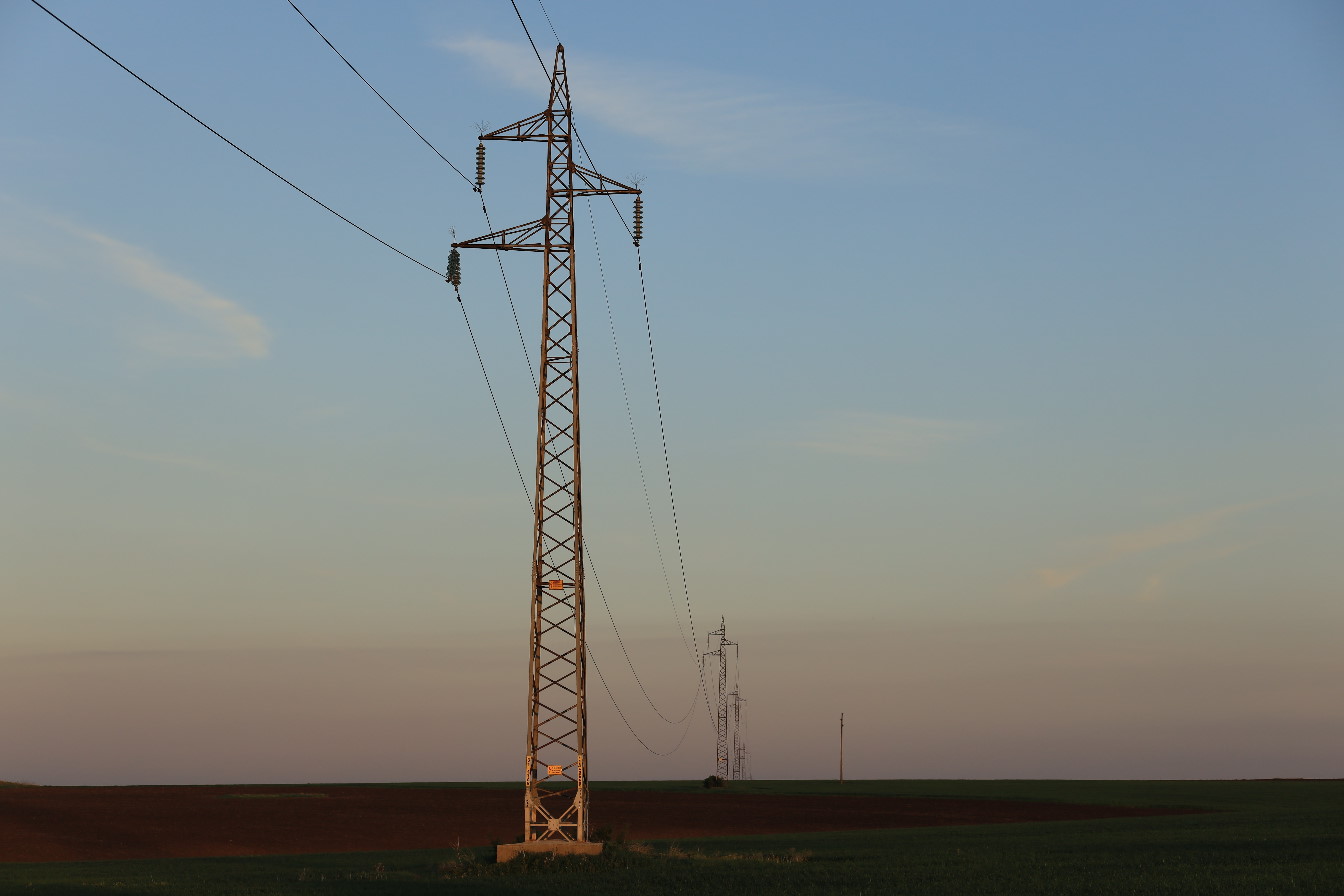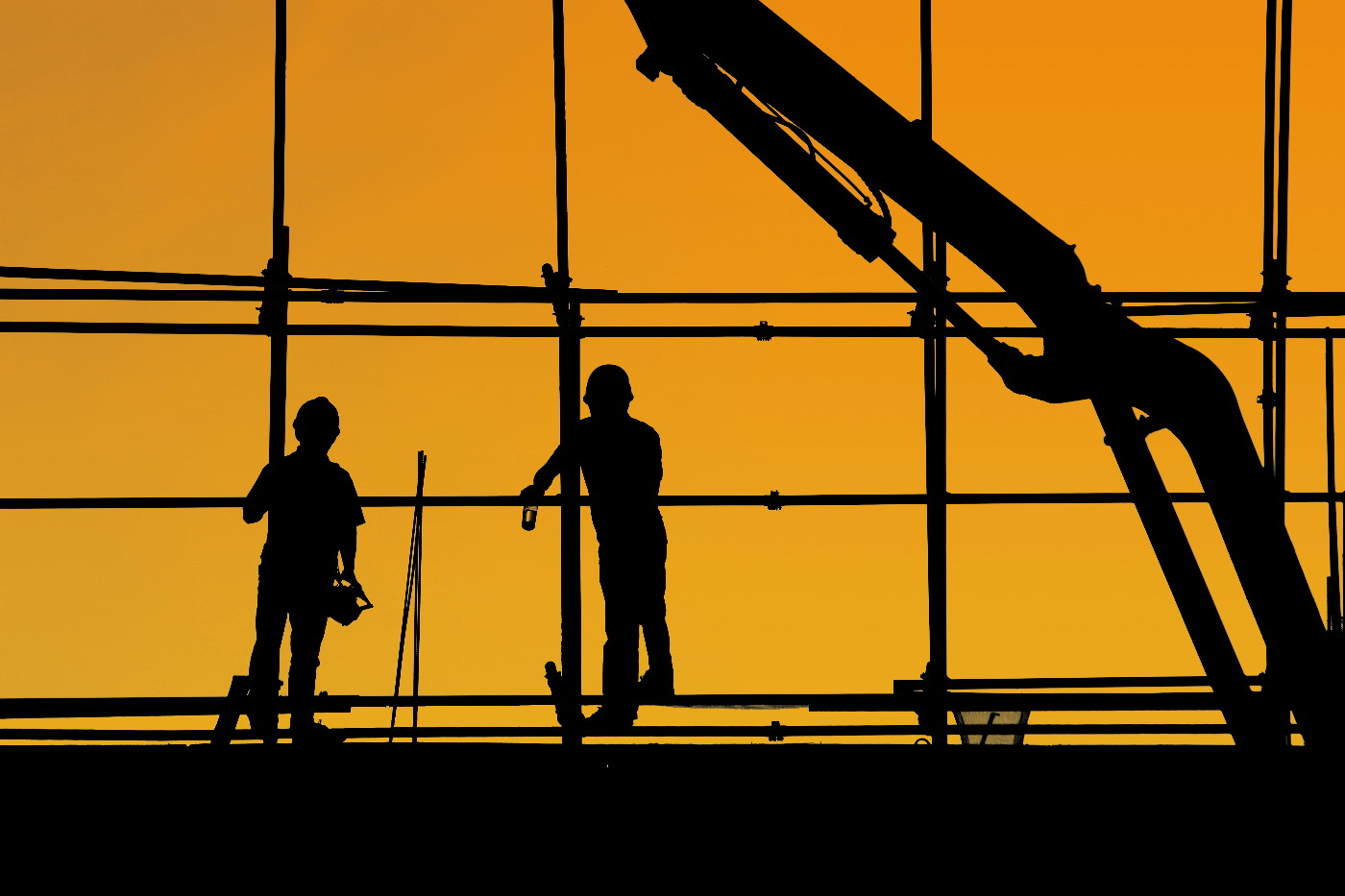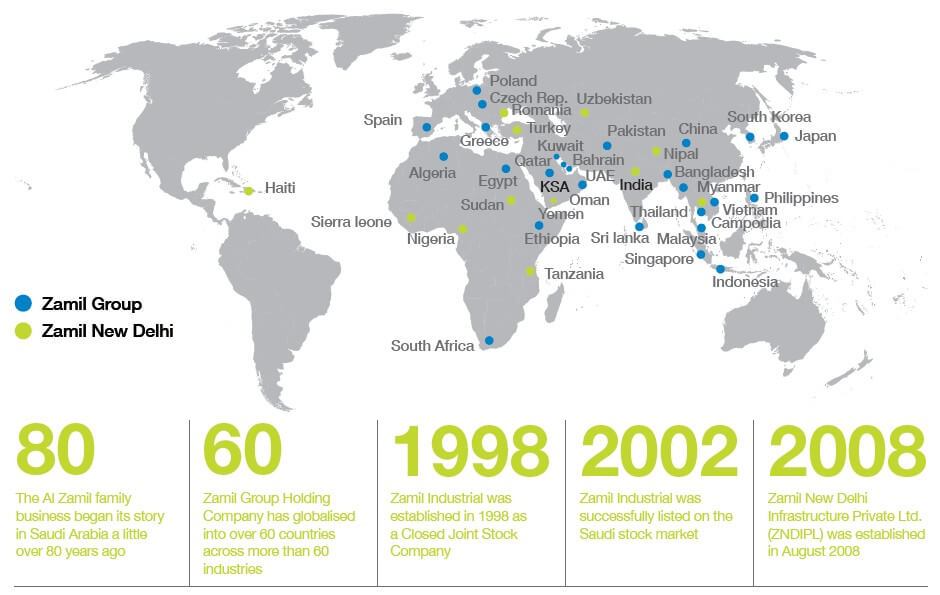The Al Zamil family business began its story in Saudi Arabia a little over 80 years ago. The family name has since spread throughout the region and across the globe as standing for one of the region’s major industrial conglomerates. Today, Zamil Group Holding Company has globalised into over 60 countries across more than 60 industries. Early on, the group has invested efforts into developing and implementing environmental best-practices in the construction industry.
One of the family’s most successful business units is Zamil Industrial Investment Company (Zamil Industrial), which was established in 1998 as a Closed Joint Stock Company. In 2002, Zamil Industrial was successfully listed on the Saudi stock market and six years later, the company founded Zamil New Delhi Infrastructure Private Ltd. (ZNDIPL) further deepening its green footprint. ZNDIPL provides energy management and telemetry solutions to telecom players across the globe. With a strong focus on innovation and Research & Development, the company has developed a range of products that include site management, site build, tower operating centres, and a host of other energy-efficient and integrated infrastructure solutions for telecom operators and tower companies.
ZNDIPL today has operations in India, Nepal, Bangladesh, Dubai, and Mauritius. The major projects include telecom engineering, procurement and construction (EPC) for Bharti, Idea, Aircel and TVI, as well as solar developing and EPC in Rajasthan, Haryana and Gujarat-India.
What is the story behind the ZNDIPL venture?
We established Zamil New Delhi Infrastructure Private Ltd. (ZNDIPL) in August 2008. The mission of the company is to supply passive telecom infrastructures, including galvanized telecom towers, shelters with sandwich panels and air conditioning equipment to expanding companies engaged in the growing global telecom industry. Zamil Industrial holds a 51% stake in the company.
With ZNDIPL we are catering to the growing demand for both active and passive infrastructure solutions for the fast growing telecom industry in India. Today, the company has achieved a unique position by being able to meet current and future needs of the infrastructure industry as a turnkey EPC player and as an integrated solution provider.
The company combines the resources of New Delhi Tele-Towers Private Ltd. with the production capacity of the existing Zamil PEB factory located in Pune, India, as well as the Zamil-affiliated air conditioning facility of Himachal Pradesh in Northern India and various Zamil Industrial facilities in Saudi Arabia. The approach we have taken here is new to us, since it is the first Zamil Industrial venture to which we have dedicated an entirely new business entity.
What is meant by the term ‘ZND (Zamil New Delhi) process’?
By the ZND process we mean that our business principles have always guided our actions. The interests of our customers, partners, investors and other stakeholders are at the centre of our strategies and decisions. We share their expectations for excellent return on their investments and we deal with them with fairness and respect.
Our mission is to deliver quality, innovative and price-sensitive products, services, and investment opportunities. We intend to achieve this through a commitment to excellence, a dedicated workforce and the adaptation of leading technologies.
It also means that we are highly involved in the markets we serve: we enhance our client relationships through aftermarket services. This direct involvement with our clients refines our ability to anticipate and meet their evolving needs and expectations.
How did Zamil Industrial go about finding the right partners for ZNDIPL?
We partnered with two veterans from the Indian telecom industry, in order to become an active participant in the telecom business in India from the beginning, as the possibilities for growth and innovation were endless. The partners’ vast experience, excellent track record, and deep relationships, represented an advantage for us to establish new business and opportunities in the industry.
After this promising result in India, does Zamil Industrial intend to undertake more ‘Green Ventures’ aimed at other industries?
This is not our first green venture: Zamil Industrial businesses implement the essential elements of ‘green thinking’ in every aspect of the construction industry that we serve. We began with the Research and Development that led to energy efficient air conditioning systems, and over the years have directed our resources into the development of insulation materials, glass, and concrete products that substantially increase the energy efficiency of a broad range of structures.
We also focus on initiatives that minimise any adverse environmental impacts of all company-owned and operated facilities. We evaluate every opportunity for the expansion of our ‘green potential’ applied to the overall building and construction industry.

Are family businesses in the region doing enough to raise awareness about environmental issues?
Most family businesses in the region are leaders in raising awareness when it comes to environmental issues. Because we work where we live, we are mindful of the fact that every factory we open, every new product line we initiate, and every product we ship affects the quality of the air, water, and land that surrounds the homes of our families and communities.

Encouraging other businesses to follow our lead is one of our top priorities, and we do this by sharing knowledge, technology and resources. We also offer environmental education and support in our ventures abroad to help preserve the environment for future generations wherever we conduct operations.
What do you recommend to family businesses that are interested in ‘going green’?
Going green is the right thing to do – just be sure you are actually implementing a relevant green solution. Family businesses need to understand the problem before they can come up with solutions that make sense, and they need to measure our current ecological impact on the environment to understand what to focus on.
Environmental solutions will result in better health, a better environment, and in many cases save money too. It would be beneficial if businesses going forward invest in green energy generation so as to achieve economies of scale in their industries.
Tharawat Magazine, Issue 13, 2012
















